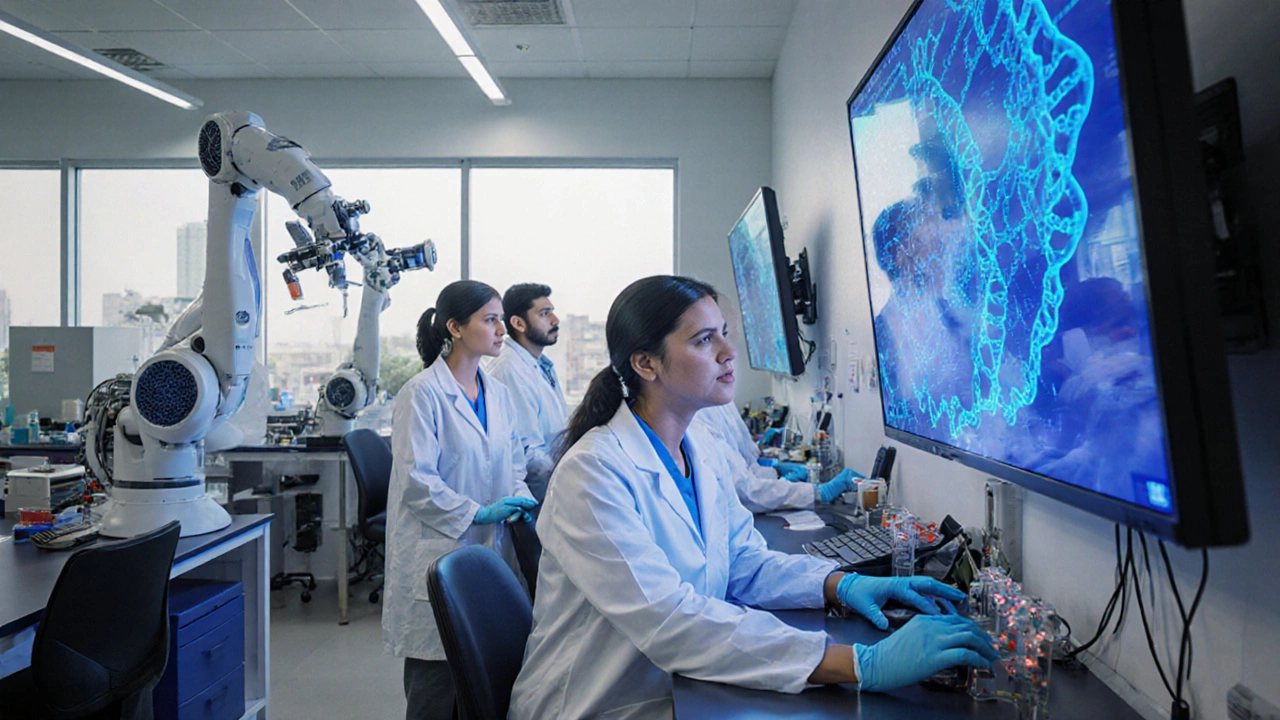Biotechnology Salary: What You Really Earn in India’s Fastest-Growing Field
When you hear biotechnology, the use of living systems and organisms to develop or make products, especially in medicine, agriculture, and industry. Also known as biotech, it's not just lab coats and petri dishes—it’s turning genes into cures, bacteria into fuel, and cells into diagnostics. In India, this field is no longer niche. It’s booming, with startups, pharma giants, and government labs all racing to hire talent. But here’s the real question: biotechnology salary—how much do people actually make?
The answer isn’t one number. It depends on where you work, what you do, and how deep your skills go. A lab technician fresh out of college might start at ₹3–4 lakh a year. But a biopharmaceutical, a drug or therapy developed using biological processes, often involving engineered cells or proteins scientist with five years of experience in vaccine development? That’s ₹12–18 lakh. And if you’re leading a CRISPR team at a Bengaluru startup or managing clinical trials for a multinational? You’re looking at ₹20–30 lakh—or more. genetic engineering, the direct manipulation of an organism’s genes using biotechnology isn’t just science fiction anymore—it’s a high-paying specialty. Companies don’t just want people who can run PCR machines. They need people who understand data, regulations, and how to turn research into products that reach patients.
What’s driving this pay gap? It’s not just education. It’s impact. If you can bridge the gap between a lab discovery and a real-world treatment—if you know how to navigate IP laws, design clinical trials, or optimize fermentation processes—you’re in demand. The best-paid roles aren’t always the ones with the fanciest degrees. They’re the ones where someone connects biology to business. You’ll find these roles in cities like Hyderabad, Pune, and Bengaluru, where biotech parks and incubators are growing faster than anywhere else in Asia. And while government labs offer stability, private companies offer faster growth—and higher pay.
So if you’re thinking about a career in this field, don’t just ask, "What’s the salary?" Ask: "What skill will make me indispensable?" Can you code? Do you understand regulatory pathways? Have you worked with AI tools that predict protein structures? Those are the things that turn a ₹4 lakh job into a ₹25 lakh one. Below, you’ll find real posts that break down how biotech careers actually work—the roles, the pay structures, the breakthroughs, and the hidden challenges no one talks about. This isn’t theory. It’s what’s happening now, in India, right now.





